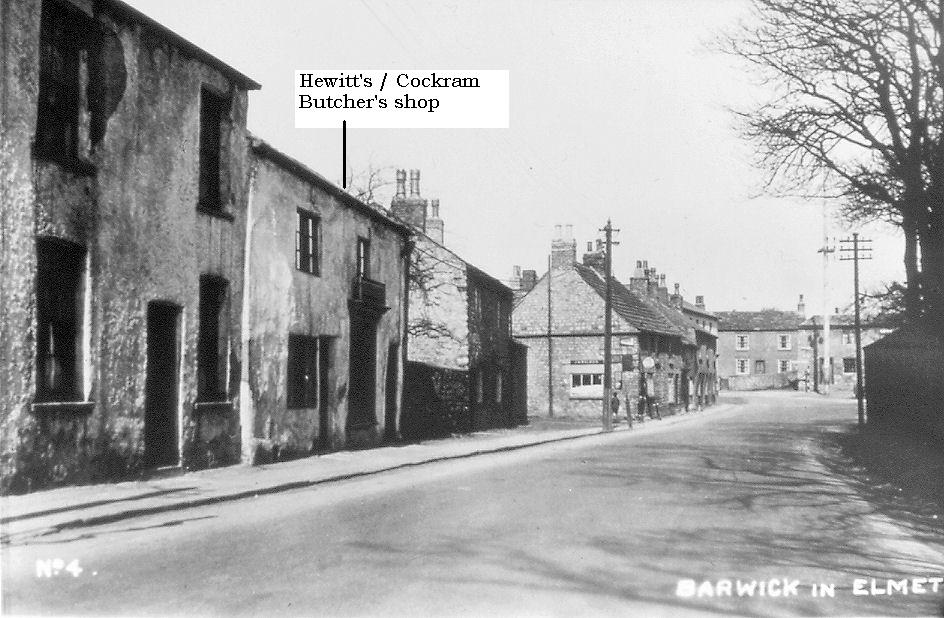
| “Who could ha’ done it?” “I don’t know, but one of my lads – a hired lad – who lives at Scholes, says he saw two men near t’mill on the way comin’ from Scholes to Barwick on Sunday afternoon, and lots o’ other folks saw them at night in the village. One wore an overcoat, and t’other wore a reefer sort o’ coat, with shiny buttons. No, I don’t know they were brass, but they shined in t’dark.” |
| “On Sunday night my youngest daughter, Anne, and I went to church. We left here about a quarter past six.” “Did you lock the door?” “Oh, yes, I locked the door, and took the key to my father (Mr. George Hewitt Snr.) and mother, who live just round the corner.” “Can I see your father? “ “I don’t know where he is. He works on the road, and he may be at Garforth one day and somewhere else the next." “Your father, I understand, came into the house in your absence to see to the fire. Can you tell what he found when he came in?” “Well he, came into my house about seven o’clock, and he did not see anything wrong. “When you came home what did you find?” “We got home about a quarter to eight, and got the key from my father. My daughter ran to unlock the door, but when we came towards the door we saw the window open. It’s fastened up now, but it wasn’t then. You will see it’s a sliding window.” |
| “But didn’t you observe anything unusual about the kitchen?” “No, nothing was disturbed, but I was too upset to notice anything particularly.” “We all [then] went into the front bed-room, which is occupied by my daughter, Clara. This bedroom was very much disturbed. There is a chest of drawers in it, and every drawer was out. The bottom drawer was forced open with a chisel (a jemmy, I reckon); and all my daughter’s little boxes were ransacked. [They had taken] a silver hunting watch, half a dozen tea spoons and sugar tongs, which my daughter had presented to her, and a locket [from this room]." |
| “My bed was turned upside-down, but they did not find anything there. We never kept any money under the beds. I had two brooches on the top of the drawers, and they were both taken. I also had a watch on a stand taken. There was a chest of drawers in the room, but none of the drawers were locked – in fact, we had no keys for them. In a little end drawer in the chest was a cash box, and, although the drawer was not locked, the box was. This is the box here.” |
| “Well”, he asked “How much money was taken?” – “There was £14 in gold and silver, mostly in gold, which was for the market, and lots of coins my husband had collected.” “How many coins?” “I don’t know. There might have been about sixty or seventy 1864 pennies – I never counted them – and a lot of old silver coins, but I don’t know how many of them there were either.” |

DAVID TEAL |
| Sources: 1891 Barwick Census General Register Office – Death Index The Skyrack Courier - 6th February 1897 |